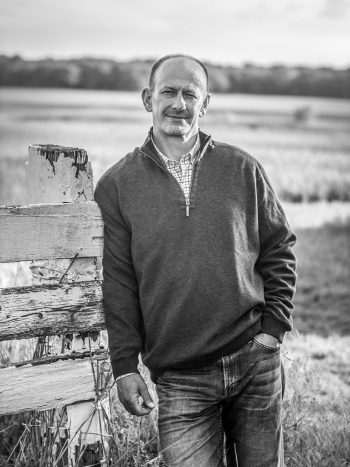
About Leonard Ruhl:
I'm a former criminal defense attorney and state and federal prosecutor with a bunch of experience in most kinds of cases including murder and large-scale drug trafficking. My career is still ongoing, but I won't go into that too much, other than to say that before writing Verdict Denied, my writing and publishing experience was as a jurist. One more clue: when I'm not sitting on the bench on a softball field coaching girls' 12U softball, I might be sitting the bench professionally.
What inspires you to write?
Folks that stand up to the depravity of the world at great personal cost inspire my writing. Personal sacrifice to stand up for what is right is always inspirational to me. Mix in a little angst and doubt about what is right or wrong given a certain set of facts, and I have a deeply troubled character worth writing about. Bringing a healthy degree of moral ambiguity to the story highlights the humanity of the characters I think, especially the hero. The hero can be torn and full of self doubt, wondering if he or she is, at the end of the day, the "bad guy." I think most readers can relate to that kind of character.
What authors do you read when you aren’t writing?
I like Robert Crais a lot. Raymond Chandler. Someone told me once my writing reminded them of James Lee Burke, so I read some of his writing and liked it very much. I'm not sure about how similar we are though and I'm not trying to say I'm in his league at the moment at all. One of my Amazon reviewers compared me to John D. MacDonald recently, and again, I had to go read his work to check out the comparison because I hadn't read his stuff. Let's just say I'm humbled and flattered and do enjoy his writing very much. John D. and Burke are tremendous writers and probably my favorites right now, but I have many authors I enjoy.
Tell us about your writing process.
I look for the idea: What's the book about? What's the inciting incident? After that, I see if I can make it into a story, ie: 3-Act structure. If I think I can, I do an outline via notebook cards. A note card for each "scene" or chapter. My outline/note cards will change 100X as I write each scene because the characters want to do their own thing because I know them before I write. It's organized and dynamic at the same time. If a scene falls flat, often it's because there's no conflict. Conflict is required, and their must be an important change in the characters' world when the scene is done. Otherwise, no one cares.
For Fiction Writers: Do you listen (or talk to) to your characters?
I definitely listen to my characters as I write. Some of them say, "Dude, I'm not saying that line that way. Try again."
What advice would you give other writers?
Get an understanding of story structure. Read "Story" by Robert Mckee. It might be about screenplays, but I think it's very helpful.
How did you decide how to publish your books?
I deal with committees and bureaucracy and process all the time and it gets old so I didn't give the traditional publishing route much of a chance really. I could spend what free time I have writing and publishing or launching emails at folks in skyscrapers on the coasts. If they think they can make money on my stories I'm sure they'll call.
What do you think about the future of book publishing?
More and more, traditional publishers will find their talent among the ranks of the self-published author. They'll see the author's market, a proven product, and the dollar signs. They'll have to get good at convincing the author they have something to offer. And they probably will have something to offer for quite some time. Broad distribution.
What genres do you write?: Thriller
What formats are your books in?: Both eBook and Print
Website(s)
Leonard Ruhl Home Page Link
Link To Leonard Ruhl Page On Amazon
Your Social Media Links
Goodreads
Facebook
YouTube
All information in this post is presented “as is” supplied by the author. We don’t edit to allow you the reader to hear the author in their own voice.
